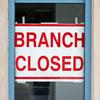Denver officials estimate that 25,000 multi-unit rental properties in the city and county, including apartment complexes, will need newly-required residential rental licenses by the impending deadline of Jan. 1, 2023 — less than eight weeks away. Only 392 multi-unit properties had secured them, as of Nov. 10.
The Department of Excise and Licenses has received 893 applications so far. “We are still a long ways” from the goal, spokesperson Eric Escudero said.
The massive shortfall isn’t going to lead to a rash of fines come Jan. 2 — the city said it won’t start considering enforcement for about a year — but it does raise the question as to why the program launched in March is so far behind schedule.
The answer, as is so often the case, isn’t any one issue and depends on who you ask: A complicated application process, a previous lack of inspectors, ignorance of the program by landlords and simple procrastination are all on the list.
The Denver City Council passed an ordinance in May 2021 that instructs anyone offering, providing or operating a residential rental property in the city and county to obtain a license.
The upcoming due date applies to those in charge of multi-unit rental properties, while single-family residential rentals don’t need to acquire the licenses until 2024. The department predicts the latter, of which 283 units have been licensed so far under the new program, will account for another 25,000 properties that need licenses.
The licenses need to be renewed once every four years.
Enforcement isn’t top of mind for the department yet. Right now, the team is focusing on education and outreach. In 2023, they’ll notify properties that haven’t yet received licenses, and give them time to comply.
“If it continues on and on down the road, and throughout next year into 2024, then we’ll start to look at what enforcement looks like,” Executive Director Molly Duplechian said.
She pointed to “a pretty big lag between finding out about the requirement, looking into getting the inspection and then actually getting your application submitted,” but “it’s human nature” to procrastinate.
The department has “improved and simplified” the application since its launch by getting rid of the ID requirements for the on-site manager of rental properties, removing required documents for possession of property and other changes.
Recently, the residential rental property license program webpage became the most visited on the department’s website, which heartens Duplechian.
“Obviously, we still have a ways to go,” she said in an interview. “But we’re encouraged by the continuous increases that we’re seeing month over month.”
As of Nov. 10, the department identifies 25 inspectors on its registry list, with the caveat that they aren’t “guaranteed to be qualified.”
“Most of the inspection companies that we’ve talked to are busy — not necessarily at full capacity,” Duplechian said. “They’re definitely getting plenty of business.”
Ultimately, the program will not only ensure these properties are meeting minimum health standards, but will also count the number of rentals — “information about the rental market that we’ve never had before,” Duplechian said.
The Denver Department of Public Health & Environment receives around 1,200 complaints about unhealthy living conditions annually. “So, hopefully, this license will reduce that number,” Escudero added.
But not all consider the new requirement necessary.
Zvi Rudawsky serves as CEO of Portus LLC, which manages Boutique Apartments and Wheelhouse Apartments. The company oversees 2,300 apartment homes in 84 buildings throughout Denver.
The new license requirements mean 10%, or 230, units must be inspected by a third-party inspector. As of Nov. 3, 69%, or 160, of their units have undergone inspection, with another round that was scheduled for last week.
The mandated inspections “have only yielded minor corrections,” with the majority of the company’s units passing.
Rudawsky expects to spend $50,000 on inspection fees and labor — a price tag that doesn’t include the application fees.
The application fee stands at $25, while the license fee varies between a low of $50 for a single dwelling unit up to a high of $500 for 251 or more units.
Related Articles
-
Denver tweaks marijuana delivery rules as businesses struggle to get off the ground
-
Massage businesses in Denver will soon need a new license to operate
-
Are there lead pipes in your apartment? Denver landlords not required to tell you.
-
Denver’s new landlord licensing program hindered by lack of inspectors
“The added expense to owners of multifamily real estate is on top of increased property taxes, increased insurance, increased utilities, increased labor and increased cost of supplies needed to run the buildings,” Rudawsky said. “Receiving the license is time-consuming, expensive, unnecessary and increases the cost to operate a rental unit in Denver.”
He pointed to internal and external inspections that his company already implements “as a course of business.” With insurance carriers, lenders and the fire department also performing their own inspections, he called the government-imposed one “redundant.”
On top of the inspection mandate, Rudawsky described the application process for licenses as cumbersome, so his company has only received them for “very few properties” so far. He said he hadn’t tried the new, simplified process, as of Nov. 3.
Andy Rhodes, president and owner of Colorado Compliance Inspections, said the program benefits renters by setting health standards, but concurred that its application process was “way too complicated” before recent changes.
He doubts that even those revisions will alleviate the current bottleneck. Given the amount of time spent by the department’s team on each license, “I just don’t think there’s enough staff to be able to get through it” quickly, Rhodes said.
However, he considers the projection of 25,000 multi-unit rental properties in need of licenses to be “way overinflated.”
“We’re not seeing that on the inspection side,” he added.
“There’s plenty of capacity” for applicants to schedule inspections — the question is whether they will.
“There are still so many owners that are unaware or confused by the new ordinance,” he said, estimating that subgroup represents 30-40% of the properties.
On top of that, Rhodes talks to callers on a weekly basis, who ask, “Well, how are they gonna find me?”
With the amount of single-family homes in need of licenses by Jan. 1, 2024, he predicts, “Next year’s gonna get worse.”


